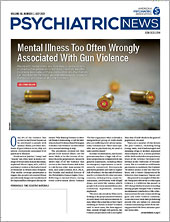As a queer-identified person, one of the authors of this article (M.M.) has encountered bias in health care delivery:
Providers have posed hetero- and cis-normative questions in their social histories (that is, I am asked questions that assume I am straight or cisgender). Clinic staff have referred to my spouse as my friend or sibling. A clinical billing administrator told me my fertility care would not be covered because I am in a same-sex partnership (my plan does cover this care, thankfully). These experiences have been uncomfortable, and as a White person with extensive other privileges, I have felt empowered to offer corrections.
Gender-diverse and gender-creative communities, including transgender and nonbinary people, faced medical and social marginalization resulting in poorer health outcomes prior to the coronavirus outbreak. The pandemic has exacerbated preexisting inequities for gender-diverse communities in multiple ways: People may experience delays in access to gender-affirming care, reduced access to social supports and community, re-exposure to unsupportive home environments, and intensified economic disparities. The burden of educating health care professionals about providing care that is inclusive of all sexual orientations and gender identities should not fall on patients. There are steps we as psychiatrists can take to educate ourselves about providing high-quality care to all patients and begin to address these care inequities.
Barriers to Care
Gender-affirming care improves wellness and carries long-term mental health benefits for gender-diverse people. Access to gender-affirming hormones and surgeries enables people to feel at home in their bodies.
At the beginning of the pandemic, many gender-diverse individuals had gender-affirming surgeries canceled or delayed due to pandemic-related postponement of elective medical procedures. While nonurgent, gender-affirming procedures can be lifesaving. In some cases, the delays and cancellations led to debilitating gender dysphoria, aggravating the already heightened stress related to the new global pandemic. During summer 2020, the Trump administration rolled back protections for transgender people in health care, adding to the tally of societal attacks this marginalized group has faced.
Though in-person gender-affirming medical and surgical care has resumed, the pandemic continues to limit access to care due to travel restrictions, quarantine requirements, infection risk, and reduced postoperative care options.
Social Isolation
Before the coronavirus pandemic, gender-diverse communities were more likely to experience unstable housing due to longstanding systemic societal oppression. The pandemic further limited opportunities for community living spaces and shelters, resource sharing, and in-person supportive spaces—aggravating preexisting inequities in access to basic necessities.
Additionally, many gender-diverse people lack affirming families of origin and thus often rely on peer communities for social support. With pandemic-related university closures, job losses, and quarantine needs, gender-diverse people may be experiencing more abuse than usual if forced to move back home or rely on unsupportive people. Living in unsupportive households may mean enduring transphobic harassment.
Economic Impacts
The pandemic has exacerbated the preexisting economic hardship for gender-diverse people, who experience higher rates of unemployment due to a legacy of discrimination in education and hiring. Additionally, job loss may mean loss of employer-sponsored insurance coverage, which creates additional barriers to health care. Not only does lack of insurance prevent access to gender-affirming care, but also to mental health care, a service crucial for a population with high rates of mental health challenges and suicidal ideation.
What We Can Do
There are steps we can take as psychiatrists to support gender-diverse people and begin to address care disparities in mental health. We can better educate ourselves and offer vital, supportive mental health services to gender-diverse people. We can use patients’ names and pronouns correctly. We can promote local, state, and federal programs that provide thoughtful, inclusive health care for gender-diverse patients. We can advocate and facilitate patient connection to gender-affirming medical and surgical therapies, if desired. We can listen to our gender-diverse patients who have experienced medical trauma and thus may mistrust the health care system. We can use motivational interviewing to learn more about how the experience of societal oppression may be contributing to vaccine hesitancy. We can identify local transgender support groups and connect patients, especially those who are isolated. We can name bias and discrimination when we witness them. We can thank colleagues and patients for their generosity and bravery in speaking up about witnessed bias. We can apologize with humility when we, as humans, inevitably make mistakes. We can start today. ■
References
1.
Endocrinology TLD&. Transgender health: access to care under threat. The Lancet Diabetes & Endocrinology. 2018;6(6):427. doi:10.1016/S2213-8587(18)30144-X
2.
Bränström R, Pachankis JE. Reduction in Mental Health Treatment Utilization Among Transgender Individuals After Gender-Affirming Surgeries: A Total Population Study. Am J Psychiatry. 2019;177(8):727-734. doi:10.1176/appi.ajp.2019.19010080
3.
Grift TC van de, Elaut E, Cerwenka SC, Cohen-Kettenis PT, Kreukels BPC. Surgical Satisfaction, Quality of Life, and Their Association After Gender-Affirming Surgery: A Follow-up Study. Journal of Sex & Marital Therapy. 2018;44(2):138-148. doi:10.1080/0092623X.2017.1326190
4.
White Hughto JM, Reisner SL. A Systematic Review of the Effects of Hormone Therapy on Psychological Functioning and Quality of Life in Transgender Individuals. Transgend Health. 2016;1(1):21-31. doi:10.1089/trgh.2015.0008
5.
Nguyen HB, Chavez AM, Lipner E, et al. Gender-Affirming Hormone Use in Transgender Individuals: Impact on Behavioral Health and Cognition. Curr Psychiatry Rep. 2018;20(12):110. doi:10.1007/s11920-018-0973-0
6.
Glynn TR, Gamarel KE, Kahler CW, Iwamoto M, Operario D, Nemoto T. The role of gender affirmation in psychological well-being among transgender women. Psychol Sex Orientat Gend Divers. 2016;3(3):336-344. doi:10.1037/sgd0000171
If you would like to learn more about providing gender-affirming care, we recommend resources such as the National LGBT Health Education Center
here.
APA members can learn more about APA’s advocacy programs and become involved by clicking
here.

